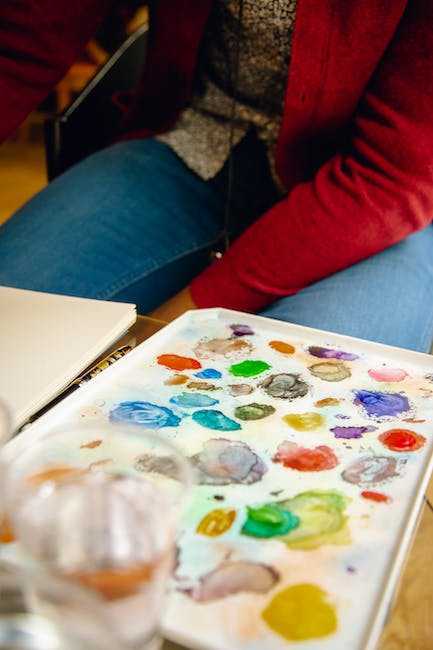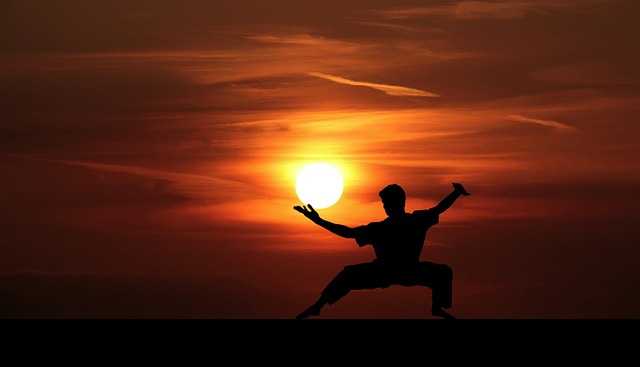Diving into a world where colors dance and emotions flow freely, artistic watercolor paintings captivate the soul with their ethereal beauty and fluid charm. Each brushstroke tells a story, each wash of pigment a vibrant journey on paper. Join us as we explore the mesmerizing realm of watercolor art, where creativity knows no bounds and imagination takes flight on delicate waves of color. Discover the magic that unfolds when art and water unite to create masterpieces that speak to the heart and stir the senses.
Table of Contents
- Exploring the Captivating World of Watercolor Techniques
- Mastering the Art of Blending Colors in Watercolor Paintings
- Techniques to Create Depth and Texture in Watercolor Artwork
- Choosing the Right Paper and Brushes for Your Watercolor Masterpieces
- Q&A
- In Conclusion


Exploring the Captivating World of Watercolor Techniques
Watercolor painting is a mesmerizing art form that allows artists to capture the beauty of their subjects with delicate brushstrokes and vibrant colors. It’s a medium that offers endless possibilities for creative expression, from ethereal washes to intricate details. By exploring various watercolor techniques, artists can create stunning artworks that evoke emotions and tell captivating stories on paper.
One of the most enchanting aspects of watercolor painting is the way colors blend and flow together, creating a sense of fluidity and movement in the artwork. Artists can achieve unique effects by experimenting with different techniques such as wet-on-wet, wet-on-dry, and dry brushing. Blending colors seamlessly and creating subtle transitions between hues are key skills that can enhance the visual impact of watercolor paintings, adding depth and dimension to the artwork. Whether you’re a seasoned artist or just starting your watercolor journey, mastering these techniques can take your paintings to new heights of creativity and originality.

Mastering the Art of Blending Colors in Watercolor Paintings
In the colorful world of watercolor painting, mastering the art of blending colors is like conducting a symphony of hues on your canvas. With a delicate brushstroke and a keen eye for harmony, you can create mesmerizing gradients and subtle transitions that breathe life into your artistic creations. Embrace the fluidity of watercolors and let the pigments dance and meld together, unveiling a masterpiece that speaks to the soul.
To achieve seamless color transitions in your watercolor paintings, experiment with different techniques such as wet-on-wet blending and layering translucent washes. Blend colors effortlessly by following these tips:
- Choose a limited color palette to maintain color harmony
- Practice blending on a separate sheet to gauge the effects
- Utilize the white space strategically to enhance your blends
Incorporating these techniques into your artistic repertoire will unlock a world of possibilities, allowing you to express emotions and ideas through the enchanting language of colors. Discover the magic of blending colors in watercolor painting and watch your creations come alive with vibrancy and depth.
Techniques to Create Depth and Texture in Watercolor Artwork
In the world of watercolor artistry, mastering techniques that infuse depth and texture into your creations is like adding magic to your brushstrokes. By experimenting with various methods, artists can transform flat surfaces into dynamic masterpieces that captivate the eye and stir the soul.
One way to elevate your watercolor paintings is by utilizing the wet-on-wet technique, where colors blend seamlessly on moist paper, creating a soft, ethereal quality. Another technique to consider is dry brushing, which involves using minimal water to achieve intricate details and textures. Incorporating salt or alcohol into your paint mix can also yield fascinating results, adding unique patterns and visual interest to your artwork. Embrace the fluidity of watercolors and unleash your creativity to craft pieces that invite viewers into a world of enchantment and wonder.

Choosing the Right Paper and Brushes for Your Watercolor Masterpieces
When it comes to bringing your artistic watercolor paintings to life, selecting the right paper and brushes can make all the difference. The paper you choose sets the foundation for your masterpiece, influencing how the colors blend and interact. Understanding the characteristics of different types of watercolor paper – whether rough, cold-pressed, or hot-pressed – allows you to control the flow of the paint and achieve various textures and effects with your artwork.
In addition to paper selection, picking the right brushes is essential for creating stunning watercolor paintings. Investing in high-quality brushes that hold ample water and maintain their shape can elevate your painting experience. Different brush shapes, such as rounds, flats, and liners, offer versatility in stroke styles, allowing you to play with details and textures in your creations. By combining the right paper and brushes, you equip yourself with the tools needed to unleash your creativity and produce breathtaking watercolor artworks.
Q&A
Q&A: Artistic Watercolor Paintings
Q: What makes watercolor paintings unique compared to other art forms?
A: Watercolor paintings are celebrated for their ethereal quality, vivid colors, and the way they effortlessly blend on paper to create stunning masterpieces. The transparent nature of watercolors allows artists to capture light and create delicate, fluid compositions that evoke emotion and depth.
Q: How can beginners start exploring watercolor painting as a creative outlet?
A: Beginners can dip their toes into the world of watercolor painting by investing in quality paints, brushes, and paper, and experimenting with different techniques such as wet-on-wet, wet-on-dry, and layering. Starting with simple subjects like flowers or landscapes allows for gradual skill development and confidence building.
Q: What are some tips for preserving the luminosity and freshness of watercolor paintings?
A: To preserve the luminosity and freshness of watercolor paintings, it is essential to work light to dark, preserving whites, and using transparent layers to build up colors. Additionally, framing watercolors behind UV-protective glass and avoiding direct sunlight helps prevent fading and discoloration over time.
Q: How can artists overcome challenges such as color mixing and control of water flow in watercolor painting?
A: Artists can improve their color mixing skills by creating a color chart, experimenting with primary color combinations, and mastering color theory. Control of water flow can be enhanced by using varied brush sizes, practicing brush techniques, and embracing the unpredictable nature of watercolors to create unique effects.
Q: What are some famous artists known for their exceptional watercolor paintings?
A: Artists like J.M.W. Turner, Winslow Homer, John Singer Sargent, and Georgia O’Keeffe are renowned for their exceptional watercolor paintings that showcase a mastery of the medium and a unique artistic vision. Studying the works of these artists can offer inspiration and insights into the diverse possibilities of watercolor painting.
In Conclusion
In a world where colors dance freely on the canvas and emotions flow like rivers of creativity, artistic watercolor paintings stand as testaments to the beauty of fluid art. Whether capturing the serene beauty of nature or expressing the depths of human emotions, watercolor paintings have a unique charm that captivates the soul.
As you delve into the mesmerizing world of watercolor art, remember to let your imagination run wild and your brush to tell stories that words cannot express. Embrace the unpredictability of watercolors, for within its fluidity lies the magic of creation.
So, grab your palette, pick up your brushes, and embark on a journey where every stroke is a whisper of your soul. Let the colors blend, the water flow, and your artistry soar. Dive into the world of watercolor paintings, where creativity knows no bounds and beauty knows no limits.
[elementor-template id=”1335″]
[elementor-template id=”1377″]
